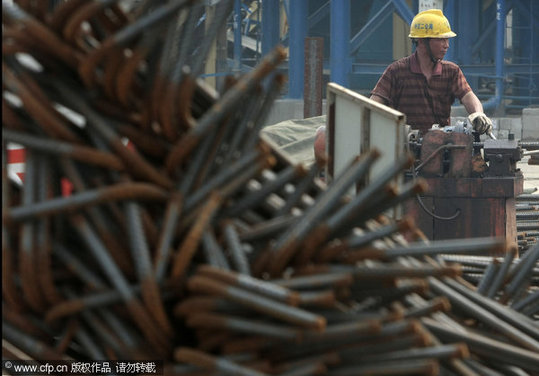
The negotiations, which missed their June 30 deadline, became more uncertain after four employees of Rio Tinto were detained on charges of espionage just a few weeks earlier.
Steel analysts too believed CISA's stance was not pragmatic.
"After Japanese and Korean mills, even some Chinese steel mills have accepted the 33-percent discount. China's bargaining chips are falling," said Yan Song, a steel industry investment manager at Hao Capital.
He said China's steel industry was disadvantaged in annual iron ore negotiations due its low industry concentration.
The output of the top 10 Chinese steel mills stood at only 30 percent of its total steel output while the three global giant miners accounted for 70 percent of global iron ore trading.
"If China gives up on the negotiations and turns to the spot market, the profits of steel mills may fall," he said. "Since the prices of iron ore and shipment are fluctuating, and are most likely to go up, steel mills will see fluctuating profits."
The iron ore spot price rose 4.6 percent to $91 a ton last week, the highest since October last year, according to Metal Bulletin prices.
(China Daily July 24, 2009)